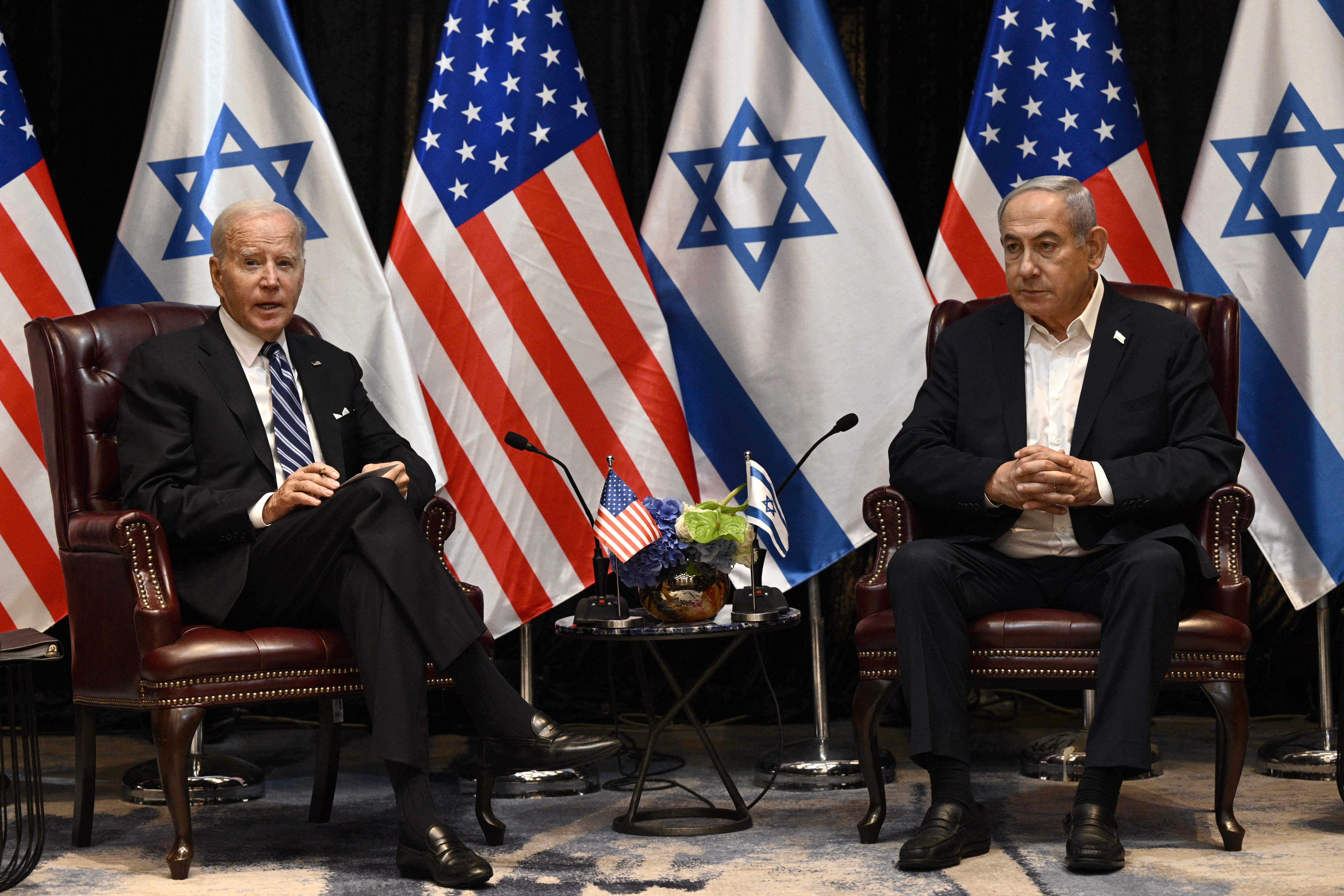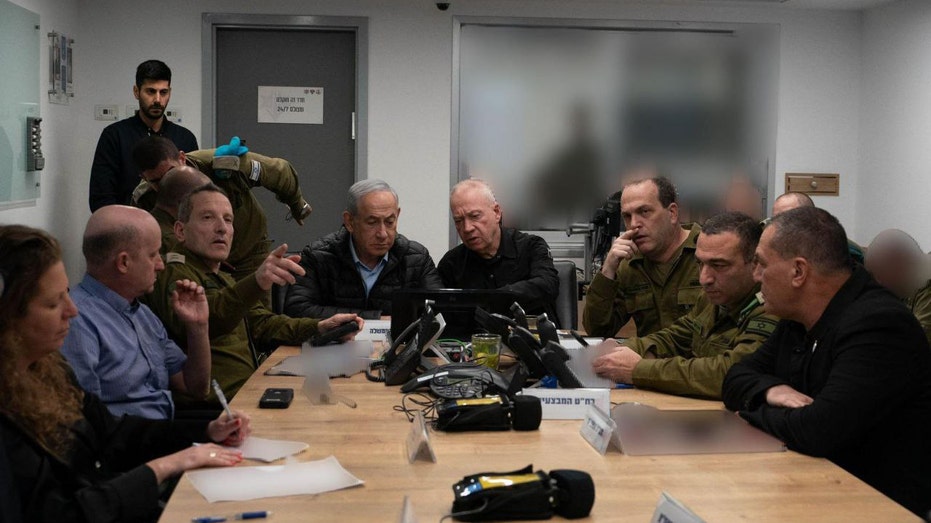Israel Wanted Ground Offensive Before Hostage Deal: Sources
Israel is reportedly considering a deal to exchange some hostages with Hamas as well as a humanitarian pause to the offensive in Gaza. Sources say the same deal has been on the table for weeks.

Israeli officials are considering a Qatari-brokered deal to release dozens of civilian hostages held by Hamas in exchange for an unknown number of women and children in Israeli jails and a multi-day humanitarian pause in the ongoing offensive in Gaza.
Within days of the Hamas-led attack on Israel that killed about 1400 people and 240 kidnapped, Qatari negotiators had begun to outline a deal to swap at least some of the hostages for women and children held by Israel. But according to regional diplomats and NATO officials, Israel resisted pressure from the U.S. as well as European and regional allies to negotiate for the hostages until the start of the ground offensive currently underway that has killed more than 11,000 Gazans and destroyed much of the small coastal strip’s housing and infrastructure.
“It’s clear the Israelis wanted a ground offensive underway before considering this proposal, which has been on the table since the first days of the conflict,” said a regional diplomat involved in the talks, who asked for anonymity to speak candidly. “The outline of a deal has not changed from the start of the talks but the Israelis in the past few days do appear more receptive.
On Wednesday, Reuters reported that Israel was considering a deal brokered by Qatar to trade about 50 civilian hostages held by Hamas for an unknown number of the estimated 140 Palestinian women and children held in Israeli jails as well as a three day pause in the Israeli offensive to allow humanitarian supplies into the badly battered strip.
Israeli Minister Benny Gantz added to speculation of an imminent deal on Wednesday during a press conference.
"Even if we are required to pause fighting in order to return our hostages, there will be no stopping the combat and the war until we achieve our goals,” he told reporters, according to the Reuters report.
Israel has demanded all of the civilian hostages released at once in past negotiations but Hamas has insisted that it does not have control of all 240 as some of the victims were kidnapped by other militant groups during the chaos of the Oct. 7 attack.
“We are willing to provide an accounting of all of the prisoners taken during the al Aqsa Flood operation,” as part of a deal, said Abu Ahmed, a spokesperson for the Beirut-based Hamas official Osama Hamden, who confirmed the outline of the deal to VICE News. “Hamas wants to return this situation to a military plane and remove as many civilians on both sides as possible.”
A NATO military official based in the region said, on the condition of background, that significant pressure by the U.S., U.K. and France to allow a pause that could free some of the dozens of dual citizens taken hostage on Oct. 7 had been mostly rebuffed by Israeli officials until this week.
“There’s been a willingness to consider it [by Israel] that had not been seen previously,” said the NATO official. “[Israeli Prime Minister Benjamin] Netanyahu can now look at the Israeli public and tell them his firm action with the ground offensive is what freed some hostages.”
But the source added that the current parameters of any deal appear to have been available well before the start of the ground offensive, almost three weeks after the Oct. 7 attack. Hamas has, at times, claimed as many as 50 hostages have been killed in the Israeli air and ground attack with one hostage, an IDF soldier, confirmed dead.
“[Netanayhu] sees a short-term political gain to arguing the offensive forced Hamas into concessions but he doesn’t seem to fear explaining how hostages might have died in air strikes while the same deal was available,” said the NATO official. “Other countries with dual citizens being held hostage and potentially killed have humanitarian and political concerns about this.”
A multi-day reprieve to allow humanitarian supplies into Gaza is crucial for the 2.2 million people, of which about half have been displaced and the rest face a collapsed health care system, limited food and water, as well as incessant Israeli shelling and air strikes, according to a resolution adopted by the U.N. Security Council on Wednesday.
On Wednesday and Thursday, the IDF continued to surround and search Gaza’s largest hospital, Al Shifa, where thousands of wounded and displaced civilians have taken refuge from the offensive. The facility, which has limited communications access, has had to suspend most medical care as supplies of medicine and fuel, to run crucial electricity generators, have almost disappeared during the siege. Israel claims the hospital provides cover for a Hamas command center in tunnels below.



